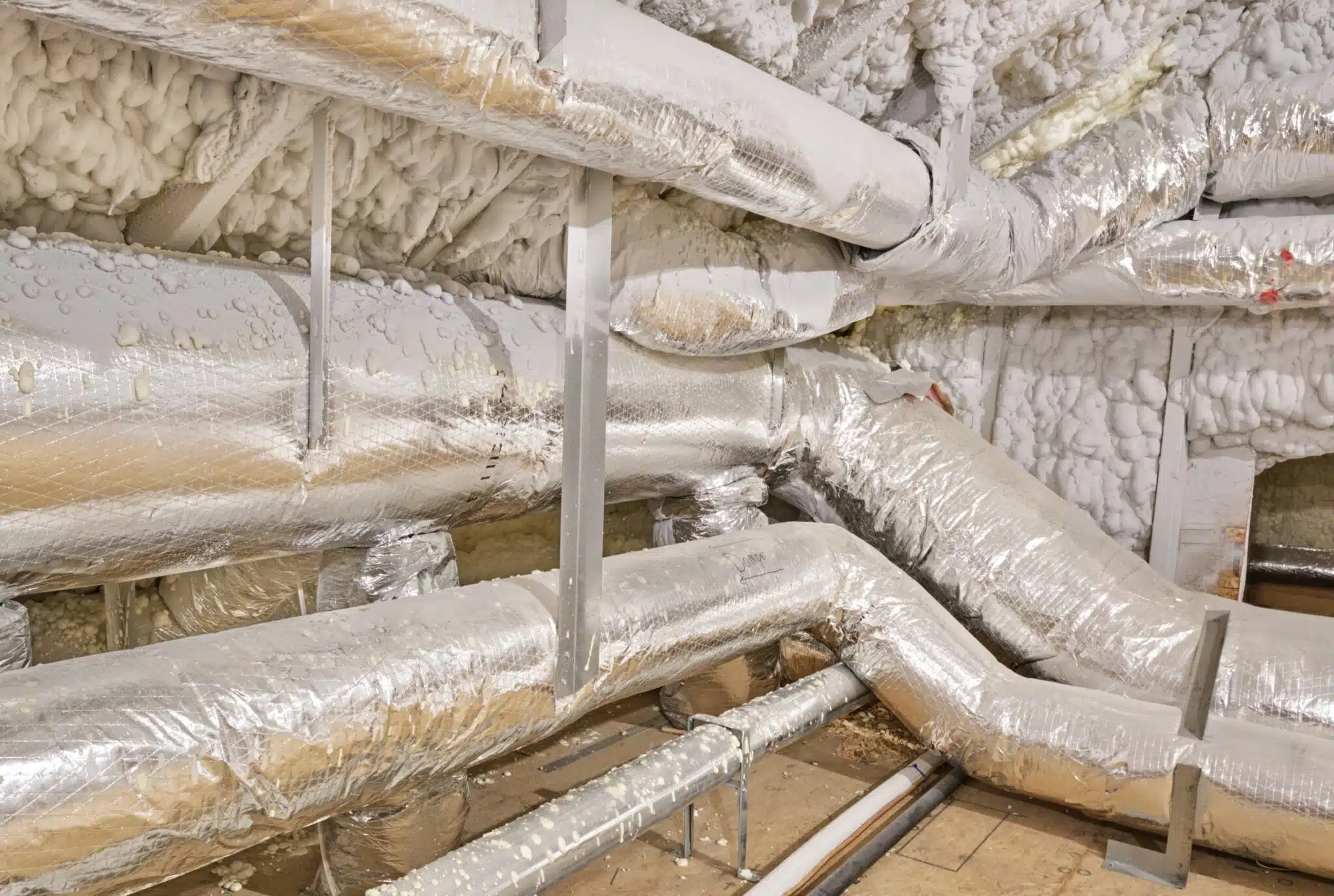How HVAC Energy Audits Can Save You Money
Homeowners and businesses alike are always on the lookout for ways to improve efficiency and reduce energy consumption. HVAC energy audits have emerged as a vital tool in achieving these goals. By assessing how heating, ventilation, and air conditioning systems consume energy, these audits can uncover valuable insights. They pave the way for enhancements that can significantly impact overall energy use.
In Harrisburg, PA, the concept of HVAC energy audits is gaining traction among property owners. These audits offer a clear picture of where and how energy is being used, or wasted, within a building. Identifying these areas is the first step toward making adjustments that not only boost efficiency but also enhance the comfort of indoor environments. It’s a proactive approach to managing energy consumption that can lead to noticeable improvements.
The importance of HVAC energy audits extends beyond Harrisburg. Residents and businesses in these areas are also recognizing the benefits of such assessments. By tailoring solutions to the specific needs identified during an audit, it’s possible to achieve more effective heating and cooling. This customization ensures that systems are not just efficient, but also perfectly suited to the unique demands of each space.
Embracing HVAC energy audits is a smart move for anyone looking to optimize their energy usage and ensure their systems are running as effectively as possible. With the potential to uncover significant savings and enhance system performance, the appeal of these audits is clear.
What is an HVAC Energy Audit?
An HVAC energy audit is a thorough examination of your heating, ventilation, and air conditioning system to identify areas where energy efficiency can be improved. It involves analyzing how the system operates and its impact on your energy consumption. Professionals use specialized tools and techniques to measure the performance of your HVAC unit, ensuring they capture a comprehensive overview of its efficiency.
During the audit, technicians look for any discrepancies in the system, such as leaks, outdated equipment, or inefficiencies in how the system distributes air throughout your home or business. They also assess the insulation and ductwork for any signs of wear or inefficiency. This detailed inspection allows them to pinpoint specific areas where improvements can be made, leading to enhanced system performance.
Based on the findings, you receive recommendations tailored to your specific situation. These might include upgrading to more energy-efficient models, sealing leaks in the ductwork, or adjusting your thermostat settings for optimal performance. Implementing these suggestions can lead to significant improvements in how your HVAC system operates, making your space more comfortable while using less energy.
Residents of Harrisburg, have seen the benefits of conducting these audits, with many reporting not only improved comfort but also a more efficient use of energy. By taking proactive steps to assess and upgrade their HVAC systems, homeowners and businesses alike can enjoy a more sustainable and cost-effective approach to heating and cooling. This makes HVAC energy audits an invaluable tool in the quest for energy efficiency and environmental stewardship.
The Process of Conducting HVAC Energy Audits
The process of conducting HVAC energy audits begins with scheduling a visit from a professional technician. They arrive equipped with the latest tools to thoroughly assess your system’s efficiency. By examining every component, from the thermostat to the air conditioner and heating units, they ensure a detailed evaluation. This comprehensive approach helps identify any issues that might be hindering your system’s performance.
Next, the technician focuses on the airflow and ventilation within your home or business. They check for leaks and blockages in the ductwork that can restrict air movement and reduce efficiency. Inspecting the insulation is also crucial, as poor insulation can lead to significant energy loss. These steps are essential in pinpointing areas where improvements are necessary for optimal system function.
After the assessment, the technician compiles a report detailing their findings and recommendations. This report is tailored to your specific needs, highlighting areas where adjustments can be made to enhance efficiency. Whether it’s upgrading equipment or sealing leaks, the suggested changes aim to improve your HVAC system’s performance. Implementing these recommendations can lead to better energy use and a more comfortable indoor environment.
Residents in Harrisburg who have undergone HVAC energy audits, report noticeable improvements in their systems’ efficiency. By following through with the professional advice given, they’ve experienced enhanced comfort and better air quality. HVAC energy audits prove to be a critical step towards achieving a more energy-efficient and comfortable living or working space.
Identifying Inefficiencies in Your HVAC System
Identifying inefficiencies in your HVAC system is a crucial step towards achieving optimal performance and energy use. Through HVAC energy audits, professionals can uncover hidden issues that may be affecting your system’s efficiency. These audits meticulously evaluate how your system operates, ensuring every aspect is analyzed for potential improvements. In cities like Harrisburg, PA, residents have experienced the benefits of such detailed inspections, leading to more efficient and effective heating and cooling solutions.
One common area of concern that HVAC energy audits reveal is the presence of leaks or blockages in the ductwork. These issues can significantly hinder the system’s ability to distribute air properly, impacting both comfort and energy consumption. By addressing these problems, you can enhance your system’s performance and ensure it operates more smoothly. Many in Harrisburg have seen firsthand how fixing these issues can transform their indoor environment.
Improving insulation is another recommendation often made following an HVAC energy audit. Poor insulation can lead to a substantial loss of energy, making your system work harder to maintain comfortable temperatures. By upgrading insulation, you can keep warm or cool air inside more effectively, reducing the strain on your HVAC system. This adjustment not only improves efficiency but also contributes to a more consistent and comfortable indoor climate.
Finally, HVAC energy audits can suggest equipment upgrades to more energy-efficient models. Such recommendations are tailored to your specific needs, ensuring you get the most out of your investment. Implementing these changes can significantly enhance your system’s performance, leading to better air quality and a more comfortable living or working space. Residents across Harrisburg have embraced these upgrades, enjoying the benefits of a more efficient HVAC system.
The Role of Insulation in HVAC Efficiency
Insulation plays a pivotal role in maximizing the benefits of HVAC energy audits. Proper insulation helps keep the desired temperature steady, reducing the need for heating or cooling systems to work overtime. This not only boosts the system’s efficiency but also enhances the comfort levels within a space. In Harrisburg, PA, homeowners have noticed a significant improvement in their indoor climate after addressing insulation issues identified during energy audits.
Upgrading insulation as recommended in an HVAC energy audit can lead to better energy management. It acts as a barrier, keeping external temperatures at bay and minimizing the loss of heated or cooled air. This improvement ensures that HVAC systems do not have to strain to maintain optimal indoor temperatures. Residents in Harrisburg have experienced the difference, enjoying a more consistent indoor environment without overburdening their HVAC systems.
The synergy between well-maintained HVAC systems and effective insulation cannot be overstated. When insulation is inadequate, even the most efficient HVAC systems can struggle to perform optimally. Energy audits frequently uncover this gap, providing a clear path to enhancing overall system performance. By following through with recommended insulation upgrades, property owners can achieve a more energy-efficient and comfortable setting.
In conclusion, HVAC energy audits serve as a critical tool in identifying how insulation impacts HVAC efficiency. By addressing the insulation improvements suggested during these audits, homeowners and businesses can significantly enhance their system’s performance. This not only leads to a more comfortable indoor environment but also supports the goal of energy efficiency. Through such proactive measures, the benefits of a well-insulated and efficiently operating HVAC system become readily apparent, contributing to a more sustainable and pleasant living or working space.

How HVAC Energy Audits Lead to Cost Savings
HVAC energy audits are a gateway to unlocking significant savings for homeowners and businesses. By pinpointing inefficiencies, these audits reveal how to optimize HVAC systems for better performance. In Harrisburg, PA, residents who have undertaken these evaluations often discover that their systems are working harder than necessary. This realization leads to targeted improvements that enhance system efficiency and reduce unnecessary energy use.
Implementing the recommendations from an HVAC energy audit can dramatically improve a system’s operation. For instance, sealing leaks in the ductwork and upgrading to energy-efficient equipment are common suggestions. These changes ensure that heating and cooling systems run more smoothly and use less energy. As a result, homes and businesses in Harrisburg have experienced a noticeable improvement in comfort and energy management.
Moreover, HVAC energy audits encourage a proactive approach to maintenance. Regular checks and timely upgrades, as advised by the audit, prevent minor issues from escalating into major problems. This foresight not only keeps systems running efficiently but also extends their lifespan. Consequently, property owners enjoy a more reliable HVAC system that supports a comfortable indoor environment without excessive energy consumption.
Ultimately, the cost savings realized from following through with an HVAC energy audit’s recommendations are considerable. By investing in the efficiency of their HVAC systems, property owners in Harrisburg, PA, and beyond can enjoy a dual benefit. They create a more comfortable living or working space while also embracing a more sustainable approach to energy use. In this way, HVAC energy audits prove to be an invaluable investment in both the present comfort and future sustainability of any property.
Implementing Audit Recommendations for Maximum Savings
After an HVAC energy audit, taking the right steps towards implementing the recommendations is crucial for achieving maximum savings. By focusing on the areas identified for improvement, such as upgrading equipment or sealing ductwork leaks, property owners can significantly enhance their system’s efficiency. This proactive approach not only optimizes energy use but also ensures that the heating and cooling systems operate more effectively. As a result, residents in Harrisburg, PA, have noticed a marked improvement in their indoor comfort and system performance.
Implementing the suggestions from an HVAC energy audit can lead to a more sustainable and efficient home or business environment. For example, addressing insulation issues and ensuring that air flows freely through the ducts can make a big difference in how well the HVAC system functions. These targeted improvements help maintain a consistent temperature, reducing the strain on the system. In Harrisburg such initiatives have led to better air quality and a more comfortable living space.
Regular maintenance is another key recommendation often highlighted in HVAC energy audits. By keeping the system in top condition and addressing any minor issues before they escalate, property owners can avoid significant disruptions. This not only extends the lifespan of the HVAC system but also supports its efficient operation. Consequently, this diligent care contributes to a reliable and effective heating and cooling system that stands the test of time.
Ultimately, the success of implementing audit recommendations lies in the commitment to enhancing HVAC system efficiency. Through careful planning and execution of suggested changes, property owners can enjoy the benefits of a more comfortable, efficient, and sustainable environment. This approach not only supports the well-being of those within the space but also aligns with broader goals of energy conservation and environmental responsibility.
The Environmental Benefits of HVAC Energy Audits
HVAC energy audits not only lead to a more efficient use of energy but also contribute significantly to environmental conservation. By identifying and rectifying inefficiencies within HVAC systems, these audits reduce the overall energy demand. This decrease in energy consumption directly correlates with a lower carbon footprint, making a positive impact on the environment. As a result, residents in Harrisburg, PA, have observed not just enhanced system performance but also a step towards greener living.
Moreover, implementing the recommendations from HVAC energy audits can lead to improved air quality. By ensuring systems operate efficiently and without overexertion, the emission of pollutants is minimized. This is particularly beneficial in urban areas like Harrisburg where reducing airborne contaminants is crucial for public health. Cleaner air contributes to a healthier environment and supports the well-being of the community.
Regular maintenance, as advised by HVAC energy audits, also plays a vital role in environmental protection. Keeping HVAC systems in optimal condition prevents the excessive use of energy and the potential release of harmful refrigerants. This proactive approach safeguards not only the system’s efficiency but also the surrounding environment, demonstrating a commitment to sustainable practices.
In conclusion, HVAC energy audits offer a pathway to a more sustainable and environmentally friendly approach to heating and cooling. By focusing on energy efficiency, air quality, and regular maintenance, these audits support a healthier planet. Through the collective efforts of homeowners and businesses, the environmental benefits of these audits can extend beyond individual properties, contributing to broader ecological well-being.
When to Consider an HVAC Energy Audit
Knowing when to schedule an HVAC energy audit is crucial for maintaining an efficient and comfortable home or business. If you’ve noticed an increase in your energy usage without a clear reason, it might be time to consider an audit. Seasonal changes in Harrisburg, PA, can put different demands on your system, making regular checks a wise decision. An audit can reveal if your HVAC system needs adjustments to handle these varying needs effectively.
If your HVAC system is older or you’ve recently renovated your space, an energy audit can be particularly beneficial. Older systems in Harrisburg may not operate as efficiently as newer models, and changes to your building’s layout can affect heating and cooling distribution. An audit assesses these factors, offering insights into how your system can better match your current living or working conditions. This ensures your HVAC system is optimized for both efficiency and comfort.
Another sign that it’s time for an HVAC energy audit is if certain rooms in your property are too hot or too cold. Uneven temperatures can indicate issues with insulation, ductwork, or the HVAC system itself. An energy audit can pinpoint the cause of these imbalances, providing a roadmap for creating a more consistent and comfortable indoor environment. Addressing these issues not only improves comfort but also contributes to the system’s efficient operation.
Lastly, if you’re committed to reducing your environmental impact, an HVAC energy audit is a step in the right direction. By optimizing your system’s efficiency, you’ll use less energy, which in turn reduces your carbon footprint. This proactive approach not only benefits your own property in Harrisburg, PA, but also contributes to broader environmental conservation efforts. An energy audit is a practical measure for those looking to live and work more sustainably.
Frequently Asked Questions
What is an HVAC Energy Audit?
An HVAC energy audit is a thorough inspection of your heating, ventilation, and air conditioning system. It identifies areas where energy use can be reduced. Experts analyze your system’s efficiency and suggest improvements. This process helps enhance performance and can lead to significant savings on energy bills.
How can an audit reduce my bills?
An HVAC energy audit pinpoints inefficiencies in your system. By identifying these areas, experts can recommend targeted improvements. These enhancements boost your system’s efficiency, leading to lower energy use. As a result, you enjoy reduced utility bills while maintaining optimal comfort in your home.
What’s involved in HVAC Energy Audits?
HVAC energy audits involve a detailed examination of your heating, ventilation, and air conditioning system. Experts assess how well your system is working and look for any inefficiencies. They also check for leaks, outdated equipment, and other factors that could be wasting energy. The goal is to find ways to make your HVAC system run more efficiently, saving energy and improving performance.
How often should I get an audit?
Experts recommend scheduling an HVAC energy audit every few years. This regular check-up ensures your system remains efficient over time. It also helps catch any potential issues before they turn into major problems. Staying proactive with these audits can lead to better performance and energy savings.
Can audits improve air quality?
Yes, HVAC energy audits can significantly enhance indoor air quality. During the audit, experts identify and address factors that affect air flow and ventilation. They also recommend solutions to reduce pollutants and allergens in your home. As a result, you’ll enjoy cleaner, healthier air alongside improved system efficiency.















